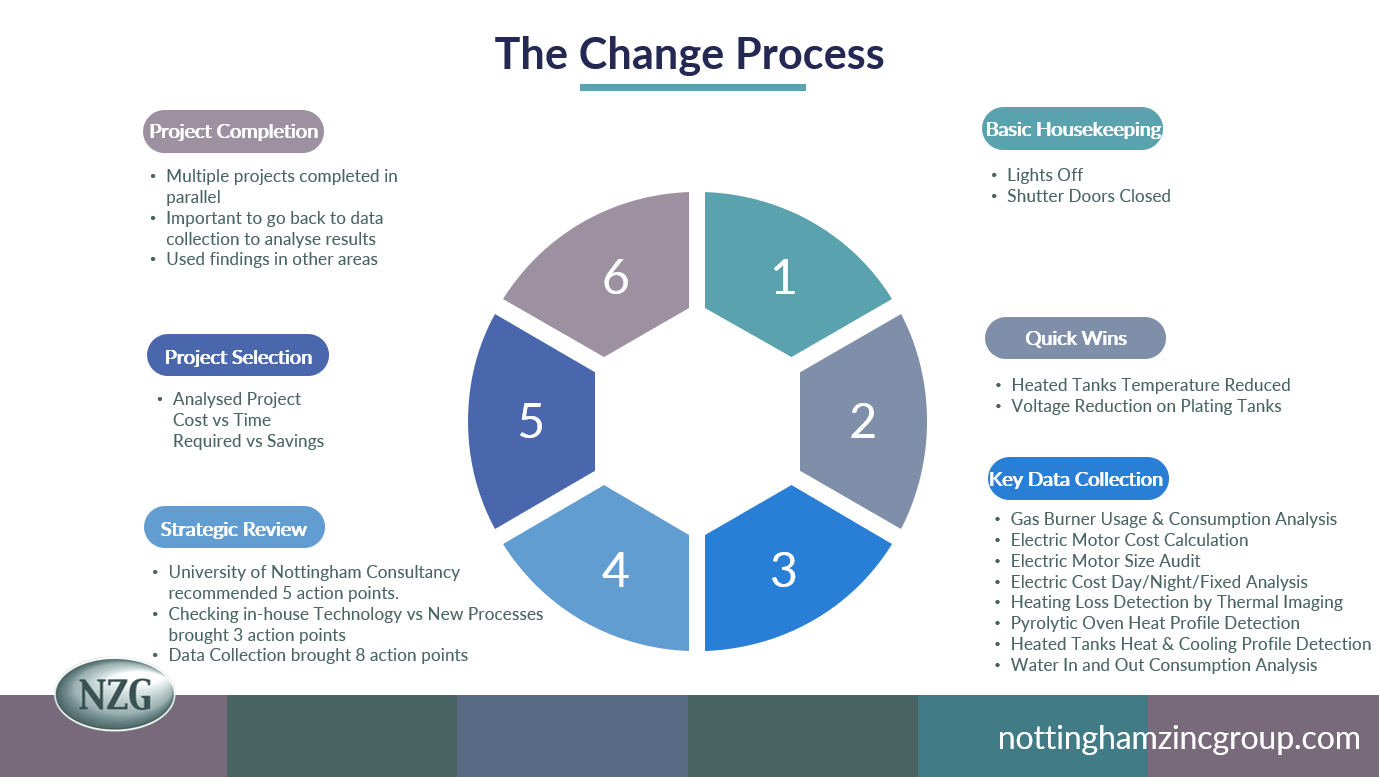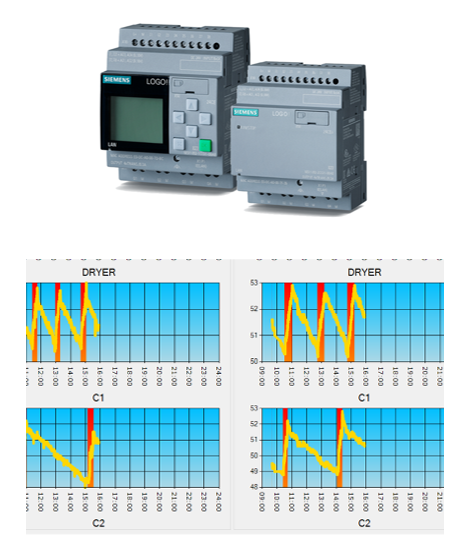Nottingham Zinc Group (NZG)
Automating Production Processes in an SME Business
Or… how we took a very deep breath then made a big leap of faith to survive.
Based on a presentation by Will Bell, Technical Manager
Nottingham Zinc Group (NZG) were established in 1982. They initially provided zinc electroplating, material handling equipment, and point of sale products for manufacturing organisations.
They expanded in their services in 1991 to adapt to changing market conditions in environmental protection and a shifting customer base. In doing so, they added electrostatic powder paint processes, product refurbishment and became pioneers in environmentally friendly alkaline zinc electroplating.
Refurbishment to OEM standards meant they now contribute to the circular economy by allowing businesses to reuse materials or products that would otherwise be scrapped. They work closely with Severn Trent Water and the Environment Agency to ensure the highest SOPs for trade effluent disposal
19th Jul 2023
NZG's catalyst for change was based on the increasing cost of energy. NZG is an intensive energy user. In September 2022, energy was 8% of turnover. By March 2022 this had grown to 33%.
To begin to address their issues, NZG followed the change process illustrated in the diagram below.

Data Collection
Data was key to the change process. NZG knew their overall costs but not the distribution of consumption. To address this, they purchased low cost ethernet units to turn data into a readable format.
These units were not expensive. For example, their setup for burner analysis used a programmable logic controller with temperature probe expansion and two probes. It cost just over £300.

Projects
NGZ undertook the following projects:
- Decorbonator Machine, with the aim of reducing resistance in plating solution in order to reduce power required to apply zinc. They achieved a 20% drop in power consumption along with a reduction in use of solution cooling equipment and a reduced chemical requirement of 10% each.
- Pyrolytic Oven, with the aim of reducing gas usage, increasing oven control, and improving overall performance. They achieved a 50% reduction of gas consumption and a 75% increase in production output.
- Smart Burner Monitoring and Controls, with the aim of identifying inefficient burners, increasing the control of temperature, and providing greater visibility of issues and remote access to maintenance staff. The project provided less downtime, easier identification of high usage burners and a reduction in time to rectify problems.
Overall Achievement
In summary, NZG group achieved an overall energy consumption reduction of 25% through accurate real time monitoring. Their carbon footprint reduced from 628 tonnes CO2e to 483 tonnes CO2e, a 23% improvement.
On top of this they achieved productivity gains from greater output, less downtime, and the right first time achievement of quality standards. This also led to:
- Profitability improvement through cost reduction to create greater gross margin. A 15% improvement was achieved
- Job enrichment for workforce through a reduction in physical tasks and less dependency on memory.

